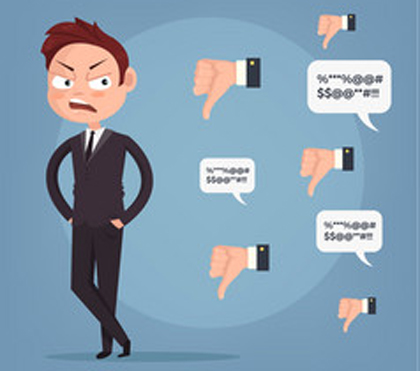Andy Lee
We have been conditioned to want to be liked. In fact, the desire to be accepted is hardwired into us. It’s a natural part of us. It’s what helps us survive.

Our chances of survival are better when we’re in a community rather than being alone. So the sensitivity to notice when others like and value our presence or not helps to develop the skills we need to get along with others. But this doesn’t come without cost.
Over the last decade and more, that instinctive need to be accepted shows up a whole lot more online. Never have we lived in a time where we are more open and exposed to judgement. Never has it been easier to be accepted or rejected.
I opened my Facebook account on 10th June 2007 and since then I’ve published thousands of posts in the last 12 years. As it has been from the beginning, people have the option of liking, commenting, or sharing my posts. More recently, in addition to ‘LIKE’ button, they introduced five more additional emoji options; love, laughter, anger, surprise, and sadness.
Now, whilst some posts get zero reactions, and some posts receive over 100 likes and loves, I can count the number of negative responses on one hand. These are where people have either selected the ‘ANGER’ emoji, or shared a critical response in the comments. Shockingly less than a handful of negative responses in thousands of posts.
Let’s say I posted three times a week as an estimate, totalling up to now as nearly 2,000 posts. At five negative responses, that’s just 0.25%. This indicates that 99.75% of the time, people liked what I put out there. Or they simply didn’t have enough courage to want to make an opposing public reaction about it.
Having already talked about our need to be accepted, this makes sense really. People want to be recognised and accepted, so they do likewise to others in hope of the same thing in return. My internal motivation for posting online is to collect support, encouragement, and validation. I wanted people to validate my thoughts, my ideas, my decisions around food, clothes, cars, video games. My opinions about books, TV, and movies. I’m looking for agreement. I’m looking for acceptance.
My point is, at least online when I post things, I would have one eye on making sure it’s safe and not too controversial. I’d be aiming for more likes and loves and approvals, and trying to stay away from anything that might cause a negative response. And that’s a problem.
I once read that a sign of your growing leadership is the increase of haters you gain. If there isn’t an opportunity for someone to take
offence at what you say, then what you’re saying isn’t important enough.
As soon as I read that, I thought WOW. That’s cool. And not cool at the same time. I loved this new way of measuring leadership. But I didn’t like that it meant I wasn’t being as influential as I could be with my message.
Let’s break it down and extract the lesson. In my efforts to garner
acceptance, I was sacrificing my leadership influence. My thoughts were never strong enough. My opinions weren’t bold enough. My stances weren’t black and white enough. They were neither very hot or very cold. Just lukewarm. And nobody likes lukewarm. In other words, I wasn’t lime green or dashing red. I was plain vanilla.
Contrastingly, you could argue that plain vanilla is fine. Lots of people like vanilla, and that’s true. However, it doesn’t work if you have a substantial message worth sharing. One that could rally and motivate people into action. One that could challenge and change people’s minds. One that could have life-altering consequences. Like a strong cause you believe in, or a particular worldview, or even a personal belief.
If we have the emotional maturity to deal with opposing views and
beliefs and opinions, then we’d be far more expressive and influential online as well as in person.
What I’m really trying to say is that your voice matters. You have
leadership influence. But have you hidden it away because you’ve made being accepted your top priority over everything else? Are others missing out on accepting the real you, the stronger and authentic you because you’d rather have more people like the vanilla version of you?
Let me leave you with this encouragement. You don’t need the whole world to accept you. In fact, you don’t need anyone’s acceptance once you figure out your true value. You need to be more vocal with your story. And you need to do this so that others can be encouraged and inspired by you.
Do forget the haters and do remember you shall have them always. As a matter of fact, they are signs to confirm you are on the right path. So, get out there and be real with yourself.